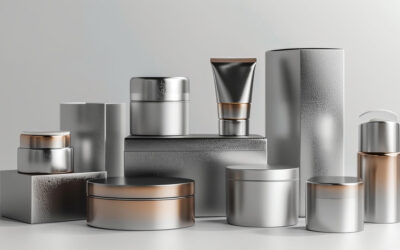Brand differentiation is an indispensable factor in the beauty industry which is very competitive nowadays. Specifically, B2B firms are also under extra pressure to deliver quality products to their customers and still maintaining an attractive price point. This is when private label beauty products come into play, offering a unique opportunity for B2B companies to produce and introduce their own personalized set of products.
This guide will acquaint you with the world of private label and how you can benefit from it in case you are a B2B company, and it will supply you a guideline of starting your own wholesale private label.
Introduction to Private Label Beauty Products
Private label beauty products are made by one producer and then, sold under the brand of another company. Thus, B2B companies can set up their branding line without the need for investment in production plants, machinery, and staff. Private label products are very popular in beauty industry, who offers wide range of products, such as, oem cosmetics, oem skin care, hair care and many more.
In B2B, the private label gives a possibility to include value to the business producing a unique brand, thereby providing quality products to their customers. Subsequent to this, these companies can become competitive in the market and their customers will have a confidence and loyalty feeling towards them.
Range of Products Available Under Wholesale Private Label
Possibility to choose from a great number of products is one of the biggest pros of private label beauty products for B2B companies. With private label, products can range from cosmetics, through skin care and down to hair care and the sky is the limit. This allows the B2B companies the possibility to produce a wide range of products, which can be tailored to the various needs of the customers.
Private label offers an opportunity for B2B companies to innovate products by inserting their unique compositions, smells, or packaging making a product more personalized for their clients. The degree of customization can distinguish a B2B company from the competition and also give the customer a feeling of exclusivity.
Benefits of Private Label for B2B Companies
Although starting a private label process seems to be an obvious decision, there are many advantages that it presents B2B companies. Here are some of the key advantages of private label beauty products:
- Price Control: The advantage of private label is that it gives B2B companies power to control their pricing. This provides them with the room to determine the price that is more competitive and reach a broad number of customers.
- Brand Leverage: B2B companies are enabled by private label products to develop their own brand and position themselves as a reliable provider for beauty products. Such a situation is likely to result in the higher level of brand awareness and brand loyalty.
- Exclusivity: Specializing in unique cosmetics private label under the private label, B2B companies can give a sense of exclusiveness to their consumers. This will also help to keep the customers and gain new ones.
- High-Quality Control: Private label manufacturers have in place quite stringent quality control measures, and hence the products that go to the market are of the highest standards. This enables B2B firms to provide the clients with standard products without having to put their money in the cosmetics manufacturing facilities.
The Process of Starting a Private Label
Private label products may appear to be an overwhelming challenge, but with a systematic approach it is quite an easy thing. Here are the steps involved in launching a wholesale private label:
Research and Plan
The initial stage is to analyze the market and locate the possible suppliers. Choose skin care manufacturer that already have many years of experience in cosmetics private label beauty products and review their product portfolio to confirm that they have what you are looking for. Develop a business plan that will include your goals, target market, product line, and budget.
Select a Manufacturer
After you have identified suppliers whom you will approach, you need to set up meetings with them so that you can inform them about your needs. This will provide you with more information on what they can do and allow you to determine the quality of their goods. Check aspects of minimum order quantities, lead time, and pricing before you make your decision of cosmetic contract manufacturing.
Design and Development
Partner with your selected manufacturer to create product formulations, packaging, and labeling. At this stage, you can put your individual stamp on the white label cosmetics to make a customized range under your brand.
Step 4: Packaging and Labeling
Packaging and labeling are very important in the beauty sector as they contribute to drawing in the customers. Collaborate with your supplier to create packaging that is attractive and represents your brand. Remember to have all information for example, ingredients, directions for use, and product claim on the labels.
Marketing and Sales
All set with your products, you are to start selling! Use various marketing approaches such as the social media, influencer collaborations and targeted advertising to your target market. Attend trade shows and meet potential customers so as to market your brand.
Conclusion
In conclusion, cosmetics private label beauty products offer an exceptional chance to B2B companies to create their own collection of custom-made products without the difficulties and costs of production. Strands provided that proper planning and partnering with a reliable manufacturer, B2B companies can reap the benefits of private label and excel in the challenging beauty market. So, go forward and think about the possibilities to introduce a wholesale private label for your B2B company right today!






